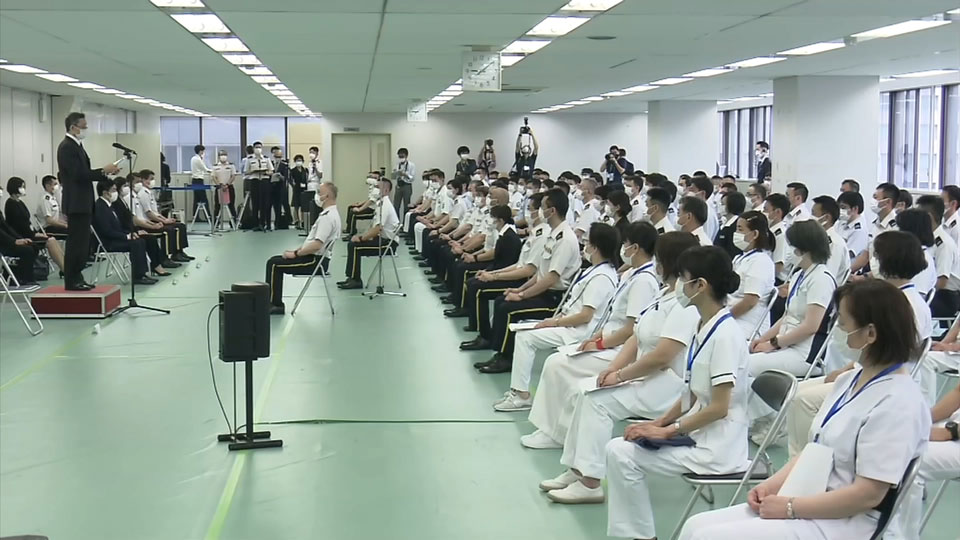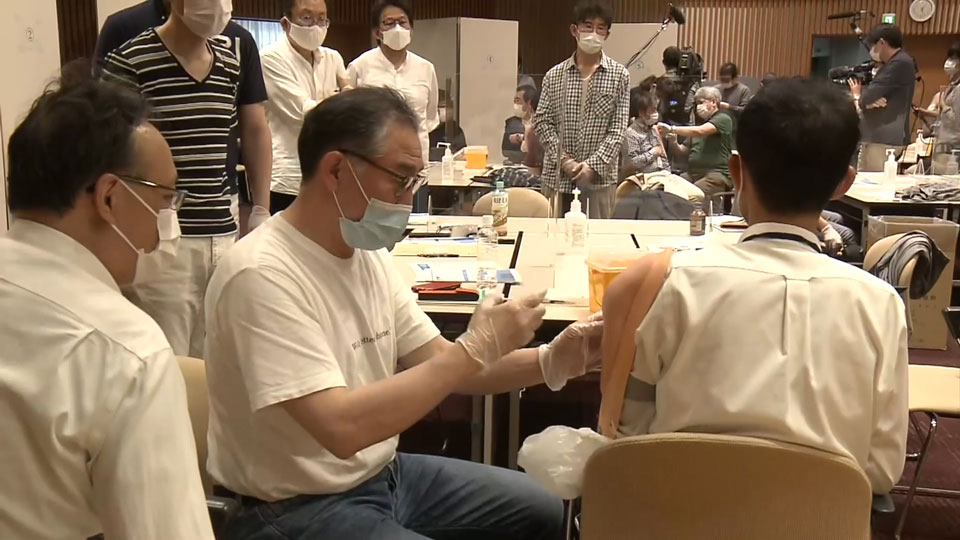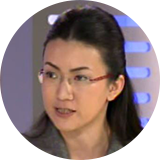“If more kinds of vaccine are available, it will lead to more doses and help accelerate the rollout,” said Chief Cabinet Secretary Kato Katsunobu on Thursday.
People aged 18 or older will likely be eligible for the Moderna vaccine, but the government has decided not to initially use AstraZeneca in its program. That’s because Japanese law stipulates that the government will fully fund inoculations and the treatment of any health problems they cause, and officials are trying to address concerns about side effects with the British vaccine.
The European Medicines Agency said last month that “unusual blood clots with low blood platelets should be listed as very rare side effects” of the AstraZeneca vaccine, so Japan’s health ministry plans to create guidelines for treating such blood clots. It will also analyze overseas data before setting a recommended age limit for the vaccine.
Large vaccination venues to open
Heath workers began vaccinating seniors across Japan on April 12. Prime Minister Suga Yoshihide has said he wants to have all 36 million elderly people — 30 percent of the population — inoculated by the end of July.
The government is setting up two large-scale vaccination centers — one in Tokyo, one in Osaka — next week to speed up the program. Both will be run by the Self-Defense Forces and are expected to administer a combined 15,000 shots a day.
Online bookings opened on May 17 for senior citizens. All 24,500 slots for the first week's vaccinations in Osaka were filled in about 25 minutes. The 49,000 slots for the Tokyo venue were full by the following day.
Kono Taro, the minister in charge of the coronavirus vaccine rollout, said on Tuesday that 30 prefectures and cities across Japan are offering to set up similar large-scale vaccination sites.
“If more people are inoculated in such large facilities, more of the smaller local venues would become available,” said Kono. “I'm confident that we can accelerate the inoculations.”

A lack of medical workers
In a survey conducted by the National Governors’ Association last month, the leaders of all 47 prefectures said a lack of medical workers was one of main obstacles to their vaccination programs.
That’s why the government has decided to allow dentists to administer vaccine shots in regions where there are shortages of medical staff. It is also considering adding pharmacists to the list.
Japan Dental Association President Hori Kenro met with Suga on Tuesday and reported that 14 prefectures and local medical associations have requested such assistance.
“I'm surprised by the large number of requests for dentists from local governments, and it continues to come in daily,” Hori said. “I have told the prime minister that we will lend our support in every way possible.”

System bottlenecks
Yokohama has the largest elderly population in the country, and people there say there is a serious bottleneck in the reservation system.
Yokohama resident Suganuma Toshio, 85, says he tried to secure a slot last week but couldn't even get through on the phone to an operator.
Suganuma says he needs to be vaccinated so he can visit his wife in a care facility. “I think officials have to hire more operators or set up a desk where people can go directly to make a booking,” he said.
International research group Our World in Data says less than 4 percent of Japan's population had received at least one dose of a vaccine as of May 18. In the United States that figure is 47 percent, while in the UK it is 54 percent.
“The program should be expedited so we can get one million people vaccinated a day,” said Wada Koji, a member of the Health Ministry’s expert panel on the coronavirus.
“Inoculations will help reduce the number of cases, and progress in the rollout of vaccinations among elderly people, in particular, will help reduce the number of serious cases.”

